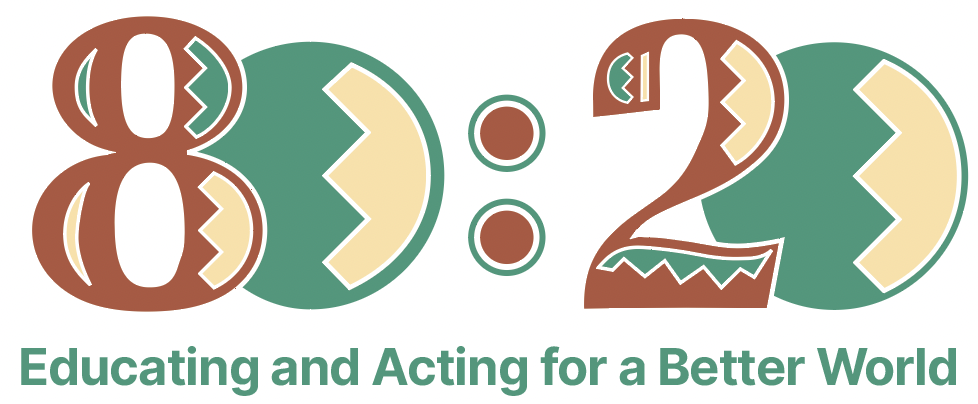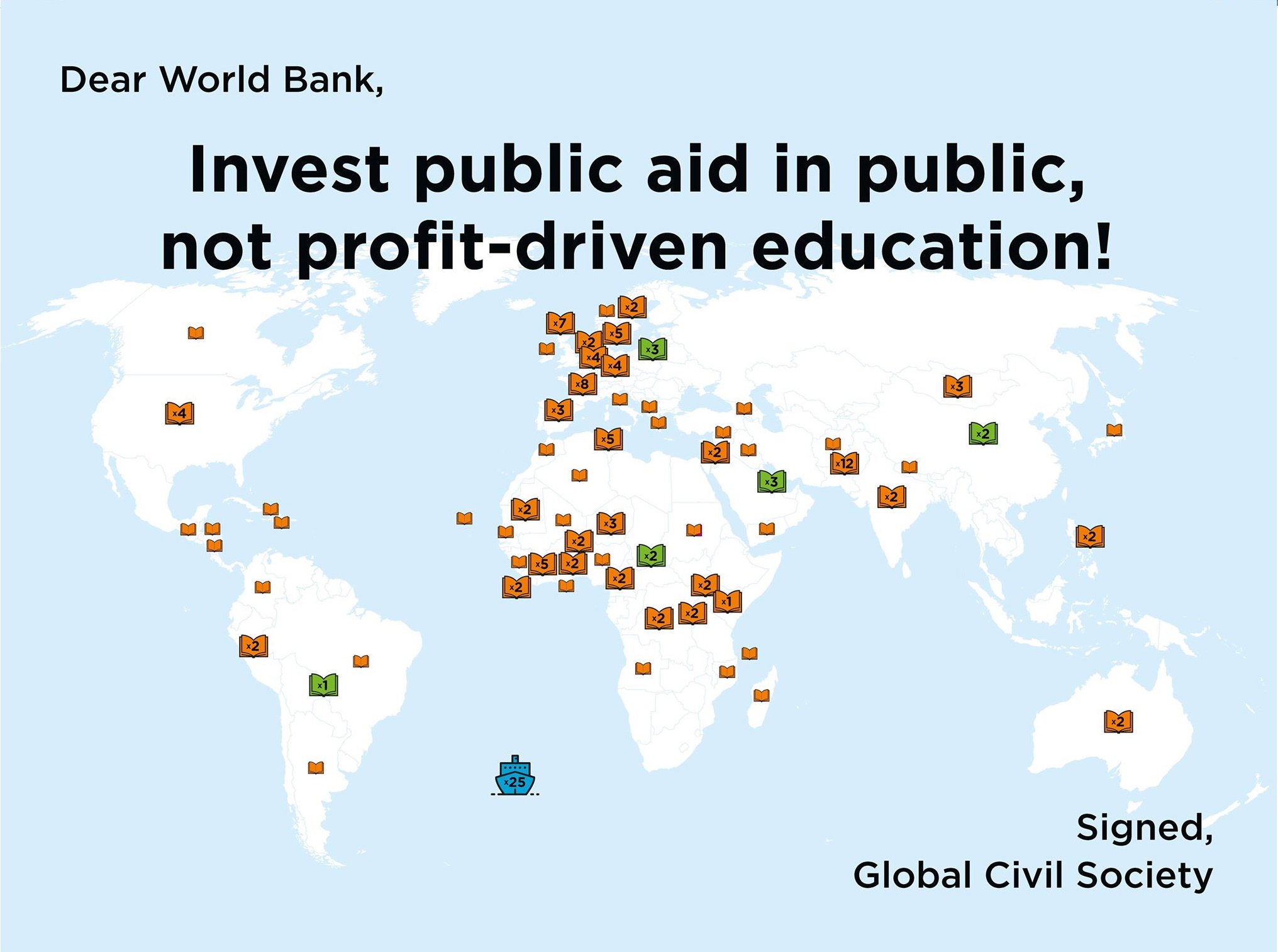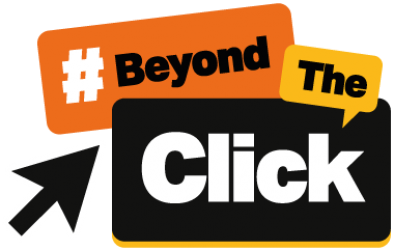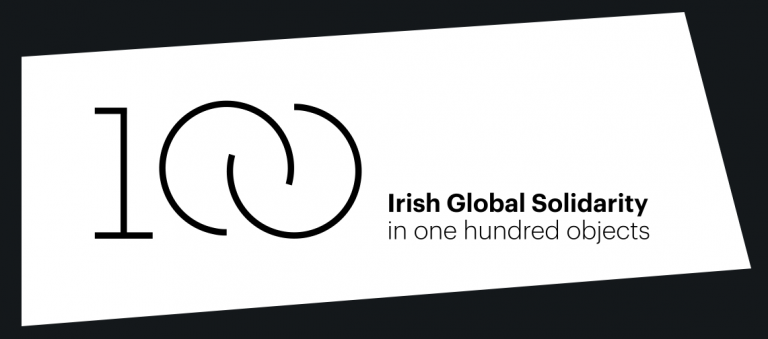80:20 Educating and Acting for a Better World joined 173 civil society organizations, national education coalitions and unions, based in 63 different countries from every continent in the world in signing a public letter in support of development aid going to free, quality public education.
The letter, released on Wednesday October 15th 2019 on behalf of the signatory organisations, was handed by Zakaria Sulemana from Oxfam in Ghana to David Malpass from the World Bank at a townhall meeting during the World Bank annual meetings in Washington DC.
Read the open letter, notes and list of signatories below.
An open letter to the World Bank and its donors
We, the undersigned, urge you to ensure that development aid for education is used to support the public provision of free, quality education that benefits all without discrimination of any kind, such as discrimination based on socio-economic disadvantage, caste, gender identity, race or disability.
Education is a human right and an essential part of the global effort to achieve all the Sustainable Development Goals. When education is free, public and good quality, it eradicates poverty, decreases economic and gender inequality, builds active citizens, protects communities and the environment, and forges inclusive and stable societies. Remarkable progress in education has been made over the last twenty years in large part due to the expansion of free public education. However, many countries have struggled to mobilize sufficient financing for inclusive public education systems of good quality. Unacceptable gaps therefore remain: children in conflict and post-conflict areas, girls, children with disabilities, minorities, refugees, LGBTI+ individuals, and the poorest still lag far behind the most privileged in access to and completion of education, and in learning achievement.
Instead of responding with greater investments in public education through progressive taxation, some countries have been experimenting with allowing commercial or other private education providers to expand, believing that this is a faster, cheaper route to providing quality education. However low-fee private schools are not equally accessed by girls or the poorest children. [1] They risk excluding learners with special needs including previously out-of-school children. Studies find that the public funding of private schooling deepens inequalities in education while failing to consistently produce better learning outcomes. [2] In particular, for-profit and commercial schools often rely on poorly qualified and poorly-paid teachers to save costs; have poor transparency and accountability, and side-step important education laws and regulations, undermining a country’s ability to ensure that its educational standards apply equally for all. [3]
Some donors are now actively using public aid money to drive the commercialisation of education in lower income countries, including the World Bank Group. While most of its funding goes to support public education provision, the World Bank is also funding some market-oriented public private partnerships (PPPs) through its International Development Association (IDA), and actively advising countries to pursue PPPs and adopt reforms that reduce regulations and incentivise the growth of private ‘education markets’.[4] It has also increased its direct support to commercial private education providers through the International Finance Corporation (IFC) – including fee-charging, for-profit school chains,[5] which clearly undermine state obligations as defined in international human rights law.
Meanwhile, the European Parliament and the Global Partnership for Education (GPE), the biggest multilateral fund for education, have both taken strong positions against directing their own aid funding to support commercial or for-profit education provision. The UN Human Rights Council, the African Commission on Human and Peoples’ Rights and various UN Treaty Bodies have recognised the obligation to progressively secure free, public – not commercialised – education in fulfilling the right to education.[6]
These positions uphold the principle that education is a right, not a market commodity. Investing in free and inclusive public education of good quality is the best way to ensure fulfilment of SDG 4.
Donors have an important voice in how financial contributions to the World Bank Group are spent, during the ongoing IDA19 replenishment process, as well as in other education financing spaces. We call on all donors and the World Bank Group itself to take a clear and principled position in support of free, publicly provided education and against the use of development aid to fund for-profit or commercial education.
When you fund education with public aid money, make sure it supports free, quality public education!

1. ActionAid International, International
2. Amnesty International, International
3. CBM International, International
4. DAWN (Development Alternatives with Women for a New Era), International
5. Defence for Children International, International
6. Disabled Peoples’ International, International
7. Education International, International
8. FICEMEA, International, International
9. GALE: The Global Alliance for LGBT Education, International
10. Gender Action, International
11. Global Campaign for Education, International
12. Global March Against Child Labour, International
13. International Disability Alliance, International
14. International Trade Union Confederation, International
15. Light for the World, International
16. Oxfam, International
17. Plan International, International
18. Right to Education Initiative, International
19. Right to Play, International
20. The Global Initiative for Economic, Social and Cultural Rights (GI-ESCR), International
21. The Lusophone Network for the Right to Education, International
22. The Society for International Development (SID), International
23. UN Major Group for Children and Youth – FfD/MoI Working Group, International
24. VIVAT International, International
25. VSO International, International
26. Forum for African Women Educationalists (FAWE), Region: Africa
27. Africa Network Campaign on Education for All, ANCEFA, Region: Africa
28. NGO Forum on ADB, Region: Asia
29. Asia South Pacific Association for Basic and Adult Education (ASPBAE), Region: Asia
30. East African Centre for Human Rights, Region: East Africa
31. European Students’ Union (ESU), Region: Europe
32. Bank Information Center Europe, Region: Europe
33. Eurodad, Region: Europe
34. CLADE (Campaña Latinoamericana por el Derecho a la Educación), Region: LAC
35. The Arab Forum for the Rights of Persons with Disabilities, Region: MENA
36. Arab Watch Coalition, Region: MENA
37. Arab Campaign for Education, Region: MENA
38. Afghanistan National Education Coalition (ANEC), Afghanistan
39. Albanian Coalition for Education, Albania
40. L’association Graine de paix d’Oran, Algeria
41. A Rede Angolana da Sociedade Civil de Educação para Todos, Angola
42. Communication and Education Program of National University of Cordoba, Argentina
43. Armenian Constitutional Right-Protective Centre NGO, Armenia
44. RESULTS International Australia, Australia
45. The Australian Coalition for Education and Development (ACED), Australia
46. Le Miroir Vagabond, Belgium
47. Centre national de coopération au développement, CNCD-11.11.11, Belgium
48. Défense des Enfants International, Belgium
49. RE-SOURCES ENFANCES ASBL, Belgium
50. JEVEV ONG, Benin
51. Centre d’Actions pour la Sécurité Alimentaire et le Développement Durable, Benin
52. The Brazilian Campaign for the Right to Education, Brazil
53. La Coalition pour Education Pour Tous BAFASHEBIGE, Burundi
54. Syndicats des travailleurs du Burundi STEB, Burundi
55. Cameroon Education For All Network (CEFAN), Cameroon
56. ONG Fapefe et Noula cib, Cameroon
57. RESULTS Canada, Canada
58. Rede Nacional da Campanha de Educação para Todos de Cabo Verde (RNCEPT-CV), Cape Verde
59. Coalición Colombiana por el Derecho a la Educación – CCDE, Colombia
60. Mouvement Associatif pour l’Education et l’Egalité des Chances MAEECHA, Comoros
61. TEACH Cote d’Ivoire, Cote d’Ivoire
62. Réseau Ivoirien pour la Promotion de l’Education Pour Tous, Cote d’Ivoire
63. SOLIDARITE-UNAFETPCI (Union Nationale des Formateurs de l’Enseignement
Technique et Professionnel de Côte d’Ivoire, Cote d’Ivoire
64. SYNAFETP-CI Syndicat National des Formateurs de l’enseignement Technique
et de la Formation Professionnelle, Cote d’Ivoire
65. Le Mouvement Ivoirien des Droits Humains (MIDHI), Cote d’Ivoire
66. Danish Union of Teachers (DLF), Denmark
67. Danske Studerendes Fællesråd, Denmark
68. Ghana Venskab, Denmark
69. International Aid Services (IAS), Denmark
70. The Danish Education Coalition, Denmark
71. Foro Socioeducativo de la República Dominicana, Dominican Republic
72. Guêpier d’Afrique ONG, DRC
73. CONEPT-RDC, DRC
74. Coalition Education – France, France
75. Humanité et Inclusion, France
76. Solidarité Laïque, France
77. Aide et Action, France
78. SNUipp-FSU, France
79. Syndicat général de l’Éducation nationale CFDT, France
80. Ligue des Droits de l’Homme, France
81. Zukunftskonvent, Germany
82. World Economy, Ecology & Development (Weed), Germany
83. Global Campaign for Education – Germany, Germany
84. Gemeingut in BürgerInnenhand (GiB), Germany
85. Ghana National Education Campaign Coalition, Ghana
86. DebtFreeProject, Advanced Media Institute, Greece
87. Colectivo de Educacion para todas y todos de Guatemala, Guatemala
88. Regroupement Education pour Toutes et Tous (REPT), Haiti
89. El Foro Dakar, Honduras
90. LOKMITRA, India
91. Right to Education Forum, India
92. Wada Na Todo Abhiyan, India
93. Centre for Equity and Inclusion (NGO), India
94. Odisha RTE Forum, India
95. Indian Social Action Forum (INSAF), India
96. The Shikshan Mandal, India
97. Habitat and Livelihood Welfare Association, India
98. Bharat Gyan Vigyan Samuday, India
99.Iraqi Institution for Development IID, Iraq
100. 80:20 Educating and Acting for a Better World, Ireland
101. Global Campaign for Education Italy, Italy
102. Japan NGO Network for Education (JNNE), Japan
103. Phenix Center for Economic and Informatics Studies, Jordan
104. Jordan Coalition for Education, Jordan
105. Elimu Yetu Coalition, Kenya
106. The Lebanese Union of Persons with Physical Disabilities, Lebanon
107. Global Peace and Development Organization, Liberia
108. Coalition for Transparency and Accountability in Education – COTAE, Liberia
109. Coalition Nationale de Madagascar pour l’education pour tous (CONAMEPT), Madagascar
110. Coalition des Organisations de la Société Civile pour l’Education Pour Tous au Mali, Mali
111. l’Association pour le Développement Economique, Social, Culturel, Mauritania, Mauritania
112. The Coalition of Mauritanian Organizations for Education (COMEDUC), Mauritania
113. GSEA Mauritius, Mauritius
114. Government Teachers Union, Mauritius
115. All for Education, National CSOs coalition, Mongolia
116. Oyu Tolgoi Watch, Mongolia
117. Rivers without Boundaries Coalition, Mongolia
118. Moltaka al Osra al Maghribia, Morocco
119. Movimento de Educação Para Todos -Moçambique, Mozambique
120. National Campaign for Education Nepal (NCE Nepal), Nepal
121. Foro de Educación y Desarrollo Humano de la Iniciativa por Nicaragua (FEDH IPN), Nicaragua
122. La Coalition Nigérienne des Associations, Niger, Syndicats et ONG de Campagne EPT, Niger
123. Syndicat national des agents de la formation et de l’éducation du Niger (SYNAFEN), Niger
124. Syndicat National des Enseignants du Niger, Niger
125. Civil Society Action Coalition on Education for All (CSACEFA), Nigeria
126. SAIH – Norwegian Students’ and Academics’ International Assistance Fund, Norway
127. Social Youth Council of Patriots SYCOP, Pakistan
128. Training and Services (ARTS) Foundation, Pakistan
129. Society for Community Strengthening and Promotion of Education, Pakistan
130. Pakistan Coalition for Education, Pakistan
131. Al-Eimman Development Organization, Pakistan
132. Rural Development Organization, Pakistan
133. Youth Organization, Pakistan
134. Youth Front Pakistan, Pakistan
135. Al Kousar Welfare Organization, Pakistan
136. HWA Foundation, Pakistan
137. Pakistan Youth Change Advocates, Pakistan
138. Blue Veins, Pakistan
139. Campaña Peruana por el Derecho a la Educación, CPDE, Peru
140. Foro Educativo Peru, Peru
141. WomanHealth Philippines, Philippines
142. The Civil Society Network for Education Reforms (E-Net Philippines), Philippines
143. le Syndicat National de l’Enseignement Elémentaire (SNEEL-CNTS), Senegal
144. Community Action to Restore Lives, CARL, Sierra Leone
145. Observatorio de la Deuda en la Globalización ODG, Spain
146. Educo, Spain
147. Campaña Mundial Por la Educacíon, Spain
148. Sudanese Coalition for Education For All (SCEFA), Sudan
149. Diakonia, Sweden
150. Lärarförbundet, Sweden
151. Transnational Institute, the Netherlands
152. Wemos, the Netherlands
153. Amis des Étrangers au Togo (ADET), Togo
154. La Coalition Nationale Togolaise pour l’Éducation Pour Tous (CNT/EPT), Togo
155. Association Tunisienne de Droit du Développement, Tunisia
156. La Ligue Tunisienne pour la Défense des Droits de L’Homme, Tunisia
157. Association des Amis du Belvédère, Tunisia
158. Maan, Tunisia
159. Ligue Tunisienne de l’Education, Tunisia
160. Witness Radio Organisation, Uganda
161. The Initiative for Social and Economic Rights (ISER), Uganda
162. Jubilee Scotland, UK
163. NASUWT The Teachers’ Union, UK
164. National Education Union, UK
165. Global Justice Now, UK
166. The Bretton Woods Project, UK
167. The Equality Trust, UK
168. Send my Friend to School, UK
169. Bank Information Center (BIC), USA
170. Global Campaign for Education-US, USA
171. The Oakland Institute, USA
172. RESULTS, USA
173. Wedyan Association For Society Development, Yemen
Notes
[1] Day Ashley L., et al. (2014) The role and impact of private schools in developing countries: a rigorous review of the evidence, DFID bit.ly/2kuWody; Srivastava, P. (2013) “Low-fee private schooling: issues and evidence” in P. Srivastava (Ed.) Low-fee Private Schooling: aggravating equity or mitigating disadvantage? Oxford Studies in Comparative Education Series (Symposium Books, Oxford, 2013).
[2] K.M. Bous and J. Farr (2019) False Promises: How delivering education through public-private partnerships risks fueling inequality instead of achieving quality education for all. Oxfam Briefing Paper. bit.ly/2m2GZlj
[3] For example see: Republic of Uganda in the High Court of Uganda at Kampala, Bridge International Academies vs. Attorney General: Ruling. March 16, 2018. bit.ly/2m3NV1B; Riep, C. (2015) Omega Schools Franchise in Ghana: A case of “low-fee” private education for the poor or for-profiteering? ESP Working Paper Series; Kenya National Union of Teachers and Education International (2016) Bridge vs. Reality: A study of Bridge International Academies’ for-profit schooling in Kenya bit.ly/2g06UWO; Education International, Regulatory framework for Philippine private schools and practices in APEC schools bit.ly/2lzGWNG
[4] K.M. Bous and J. Farr (2019) op.cit.
[5] Baker, T. and W. Smith (2017) From Free to Fee: Are for-profit, fee charging private schools the solution for the world’s poor? RESULTS Educational Fund. bit.ly/2kuWm5q
[6] For statements by international human rights bodies, see bit.ly/2kld8nP. See also the Report of the UN Special Rapporteur on the Right to Education, (2019) Right to education: the implementation of the right to education and Sustainable Development Goal 4 in the context of the growth of private actors in education bit.ly/2kwj90S; and the 2018 Report of the UN Special Rapporteur on Extreme Poverty and Human Rights on privatization and its impact on human rights, undocs.org/A/73/396.





